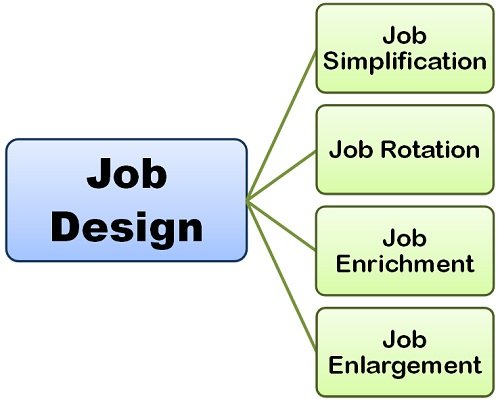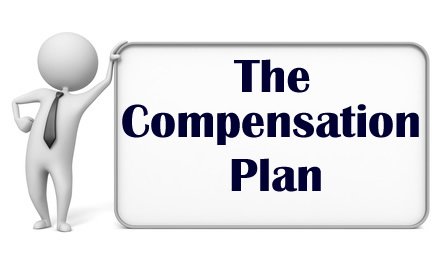How to Increase Job Satisfaction and Employee Morale
Job satisfaction is defined as the amount of positive feelings that employees have towards jobs or pleasure associated with their jobs. It is a positive response towards a job which creates motivation to perform a job with willingness and more interest. Job satisfaction is the most important factor which highly reduces employee turnover and cost as well. Modern managers are developing strategies to create job satisfaction in order to retain the skilled and talented human resources.

Job satisfaction is the result of enthusiasm, achievement, recognition, rewards, advancement and interest towards their jobs. So the organizations should fulfill the needs of the employees such as physiological needs, safety needs, belongingness needs, esteem and self-actualization needs. This hierarchy of needs is proposed by Maslow. According to Herzberg’s two-factor theory working conditions, supervision, salary, company policies and interpersonal relations with peers, superiors, subordinates, etc are considered as hygiene factors, whereas advancement in career, recognition, responsibility, and achievement are considered as motivators. So the managers should identify the needs and problems of the employees to maximize the morale and job satisfaction, they should know the factors which are creating dissatisfaction in the employees.
Porter and Lawler explained process theories of motivation depending on the individual’s perceptions and expectations. According to this theory job satisfaction is the result of expectations and rewards; here the rewards may be intrinsic or extrinsic. For example, if an employee invests his/her intelligence, expertise and time in fulfilling a task, then they expect a positive response from the employers which may be in the form of recognition or rewards. Here the employee perception towards organization brings satisfaction or dissatisfaction; it shows an effect on overall performance and productivity.
Job satisfaction can only bring motivation in the employees to perform better. So raising questions such as, what aspects or factors are responsible for satisfaction and dissatisfaction? What changes can be made to bring motivation? Do performance appraisals can bring job satisfaction? What rewards can fulfill the needs of the employees? etc can give better results in providing job satisfaction.
The factors responsible for job satisfaction
The employee needs act as the major factors for the job satisfaction which are as follows.
Job design

Job design is the most important factor which is responsible for job satisfaction, this technique is used to arrange and rearrange the contents of the job to get rid off boredom while doing the repeated tasks. Job enlargement/enhancement, job enrichment, job rotation, and job simplification are various techniques of job design.
Compensation

Compensation is the primary need to motivate the employees; it may be in the form of monetary benefits or nonmonetary benefits. To bring job satisfaction both financial and nonfinancial incentives are necessary, these include salary, bonus, extra pay for extra work, recognition, rewards, opportunity, promotion, training & development and employee participation in decision making etc.
Job security

Job security acts as a promise of giving safety and security; it maximizes the bond between the employees and organization. Employees always expect growth and recognition; this is the primary reason to put their efforts for the growth of the organization. So job security highly reduces employee turnover and maximizes employee morale.
Employee relations

Employees always look for support from the work environment and belongingness. Support from co-workers, superiors, subordinates create a positive work environment and maximizes job satisfaction. Existed leadership style in the organization also decides the extent of job satisfaction and employee turnover.
Motivators
Herzberg’s motivators can act as main factors of job satisfaction, which involve responsibility, recognition, growth, advancement, and achievement. These are higher level needs which arise after completion of the basic needs, knowing employee’s needs and finding solutions to fulfill the requirements can bring job satisfaction.
Measuring job satisfaction

The questionnaire is the most commonly used method to measure the job satisfaction. These are various versions in asking questions through questionnaire method such as not satisfied to extremely satisfied and very satisfied to very dissatisfied. According to the nature of the job and designation, organizations use personal interview method to measure job satisfaction. The content of the questionnaire may involve questions related to compensation, company policies, working conditions, job design, interpersonal relations, supervision, job security, social status, autonomy, responsibility, recognition, authority, advancement, achievement and workers/employee participation in decision making related questions. Contents of the questionnaire and techniques of measuring may differ from job to job and organization to organization.
Consequences of job satisfaction
Human resource can act as a powerful competitive advantage to maximize the productivity. Higher employee turnover creates a chance of advantage to the rival firms, so providing job satisfaction is the most important thing in creating a healthy work environment. Job satisfaction and productivity are two important variables which are interdependent; here job satisfaction may not maximize productivity, but job dissatisfaction shows major influence on the productivity and employee performance.

- It highly reduces employee turnover and it maximizes employee morale, it helps in retaining the skilled manpower and reduces the cost of recruitment and training.
- Job dissatisfaction leads to absenteeism, here the degree of dissatisfaction decides the extent of absenteeism. In the case of many employees, they may physically present but they do not actively participate in performing tasks, it results in errors and decrease in productivity.
- Lack of job satisfaction highly demotivates the employees due to the increase in stress; prolonged stress can cause mental pressure and serious health issues.
- Job dissatisfaction is the major cause of disputes in the organization it results in the revolution in the workplace finally leads to grievance and strikes.
- Job satisfaction increases the morale of the employees and creates interest to perform work in an efficient manner.
- Job satisfaction creates major scope to maximize the industrial relations and peace.




